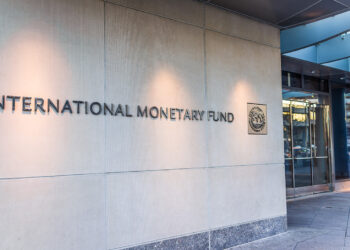CEO Brian Hartzer along with Mr Maxsted also addressed the royal commission, the bank’s financial performance for the past year and the executives’ remuneration in the company’s AGM.
Peter Hawkins, non-executive director, retired following the AGM, after 10 years of being on the board. Westpac will be electing two new non-executive directors in the first half of calendar 2019.
While the poll on the remuneration report among shareholders had not been completed at the time of the chairman’s address, more than half of the votes already received were against the resolved salaries.
“Feedback from shareholders has varied, but the key point from those voting against the remuneration report has been that although the board took events over the year into account, many have questioned whether we went far enough, particularly in reducing short-term variable reward paid to the CEO and other executives,” Mr Maxsted said.
The short-term variable reward for the Westpac CEO and group executives in Australia were on average, 25 per cent lower than last year.
No long-term variable reward was vested in 2018. Around one-third of the board’s potential remuneration forfeited, which Mr Maxsted said was equivalent to about $18 million.
The CEO saw his short-term variable reward outcome cut by 30 per cent, or $900,000 over the past year.
The largest individual year on year reduction was 50 per cent, although Westpac did not disclose who it was, or for what reason.
“This is entirely consistent with the relatively weak performance of shares in the banking sector, including Westpac, over the last few years, including the 2018 financial year,” Mr Maxsted said.
“Putting this another way, for the CEO, his total variable reward outcome was 36 per cent of his total target variable reward.”
The chairman said the key failings from Westpac in light of the royal commission were not fully appreciating the underlying risks in the financial planning business, employee remuneration contributing to poor behaviour and inadequacy in dealing with complaints.
“Better training and supervision, changes to the way financial planners were remunerated, and better documentation of advice was required,” Mr Maxsted said.
“As we have seen across the industry, where we get it wrong, the remediation is costly,” Mr Hartzer said.
“What has been clear is that we have not always embedded strong enough controls and record-keeping around ensuring that customers received the advice they had signed up for.”
Mr Maxsted also cited Westpac’s slowness in focusing on non-financial risks.
“In 2018, our financial performance was mixed; we have further built on the balance sheet and financial strengths that are a hallmark for Westpac but our annual profit was relatively flat over the year,” Mr Maxsted said.
Cash earnings for the year ended 30 September was $8 billion, $3 million up on the year before. Reported profit reached $8.1 million, increasing by 1 per cent from the prior corresponding period.
Business Bank grew profits by 8 per cent and New Zealand was up 5 per cent. Excluding the cost of remediation provisions, BT’s profit was down 1 per cent.
Institutional Banking saw its profit go down by 6 per cent, which Mr Hartzer said largely represents a slowdown in financial markets activity.
The bank also saw a slowdown in housing lending, with credit growing 5.2 per cent in the past 12 months, when it was 6.6 per cent in 2017.
“The group began the year solidly with good growth and well-managed margins in the first half. Conditions in the second-half, however, were more difficult with higher funding costs, lower mortgage spreads, and a reduced markets and treasury contribution,” Mr Maxsted said.
“In addition, we needed to lift provisions associated with customer refunds and regulatory/litigation costs as we address some of the legacy issues alluded to earlier.”
The board determined a final dividend of 94 cents per share, unchanged over the prior half and consistent with the final dividend for 2017. The full year dividend comes to 188 cents per share, unchanged from the year before.
Mr Maxsted also noted Westpac removing grandfathered commission payments in the past year, saying it was the first in the market to do so.
“With revenue growth continuing to be a challenge, we have re-doubled our efforts to reduce costs by simplifying our products, automating process and modernising our technology platform,” Mr Hartzer said.
“Over recent years, we have delivered productivity savings of around $250-300 million per year. In 2019, we aim to lift that to more than $400 million – almost one third higher than 2018.”
Mr Maxsted also mentioned the bank’s development of its new Customer Service Hub, the group’s multibrand operating system. The system is now in pilot and will go live with new Westpac mortgages in 2019.
In terms of outlook, Mr Hartzer said that while it seemed positive as a whole for the Australian economy, for banks, it looked more challenging.
“Although credit quality is likely to remain a positive, low interest rates, slowing credit growth, and a fall in consumer and business confidence – especially about house prices – puts pressure on bank earnings growth,” he said.







